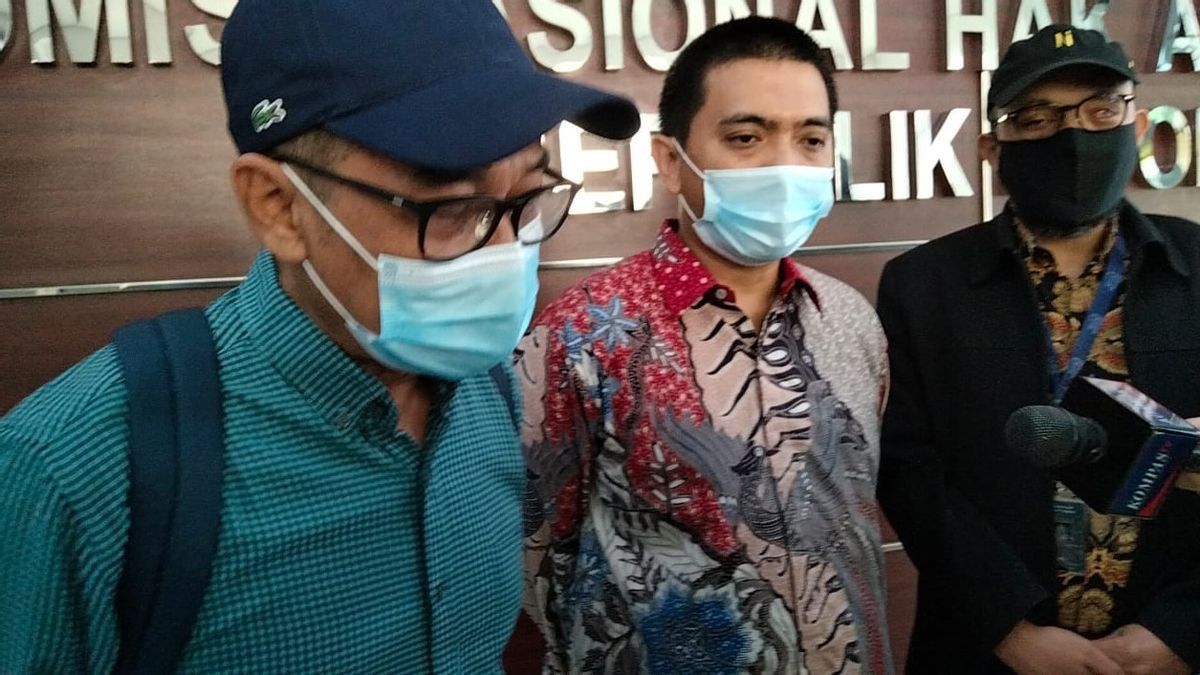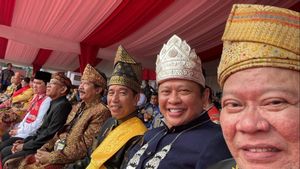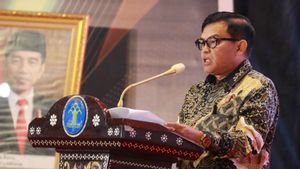JAKARTA - An inactive employee of the Corruption Eradication Commission (KPK) who did not pass the National Insight Assessment (TWK) admitted that he was not surprised by the objection of the Deputy Chairman of the KPK, Nurul Ghufron in carrying out the Ombudsman's corrective action. They considered that the anti-corruption commission in the Firli Bahuri era was an institution that did not want to be corrected.
In fact, this corrective action from the Ombudsman is the end of maladministration and abuse of authority in the TWK which is a condition for transferring the status of KPK employees.
"We are not surprised by the KPK's decision to respond to an official recommendation from the Ombudsman institution which is given the authority to provide recommendations and corrective actions. We see this attitude as an anti-correction attitude," said representatives of 75 non-active employees who are also the Chairperson of the KPK Employee Forum Yudi Purnomo Harahap told reporters. , Friday, August 5th.
As a law enforcement agency, the KPK should be able to set an example for other institutions to obey the rule of law without being picky about which one to obey. According to Yudi, the results of the final report regarding TWK issued by the Ombudsman should be the material for the anti-corruption commission to make improvements.
"Corrective actions from the Ombudsman should be used as material for the KPK to improve, not even attack the recommenders who are looking for solutions to the problem of the status of 75 KPK employees.
Furthermore, Yudi also said that the attitude of the KPK leadership showed that the statement that they had fought for him and the 74 other employees who did not pass the TWK was only rhetoric.
"The pretext that the KPK leadership has fought for the rights and fate of 75 KPK employees is mere rhetoric. Even though the KPK leadership should use the Ombudsman's recommendation as the basis for clarifying the status of 75 employees in accordance with the revision of the KPK Law, the Constitutional Court's Decision, and the President's directives so that the 75 employees can return. work," he explained.
As previously reported, the Corruption Eradication Commission (KPK) has expressed objections and will not carry out any corrective actions submitted by the Indonesian Ombudsman after maladministration and abuse of authority were found in the TWK implementation process.
In its objection, the KPK considers the Ombudsman unfair in providing its recommendations. The anti-corruption commission also considered that the Ombudsman did not respect their authority in administering the test as a condition for the transfer of their employee status to the State Civil Apparatus (ASN).
As for the four corrective actions delivered by the Ombudsman, namely asking the KPK leadership to continue to transfer the status of Novel Baswedan and 74 other employees who were declared not to have passed the TWK to become State Civil Apparatus (ASN).
Next, the Ombudsman asked the KPK not to use TWK as the basis for the dismissal of 75 employees. Then, the anti-corruption commission was asked to carry out official education regarding national insight for employees who were terminated because they did not pass the TWK.
Finally, the KPK was asked to explain to its employees about the consequences of implementing TWK in the form of information or legal documents.
The English, Chinese, Japanese, Arabic, and French versions are automatically generated by the AI. So there may still be inaccuracies in translating, please always see Indonesian as our main language. (system supported by DigitalSiber.id)













